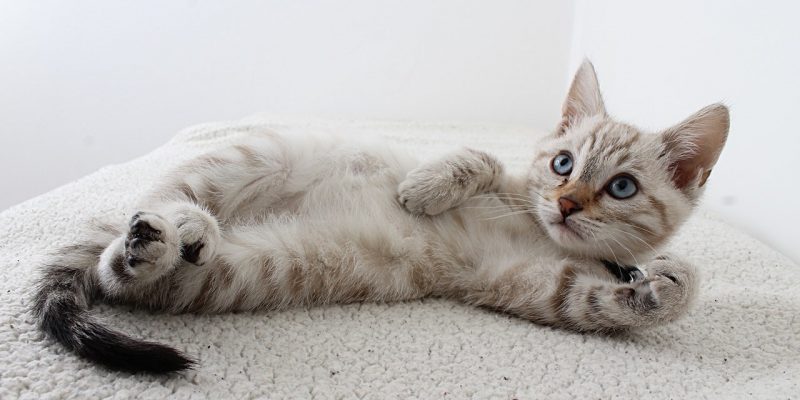
How To Learn German by Talking About Cats
If you love cats and are looking for a language to learn online, German may be the perfect fit for you! In Germany, the most popular household pets are cats with 25% of households calling themselves home to a feline friend. German speakers’ love for cats is so profound, their language is filled with feline-inspired idioms.

Is it possible the love is mutual, and cats understand German better than other languages? An infamous TikTok (video available below) originally posted in the summer of 2020 seems to argue so; it depicts a man calling to cats in a variety of languages. Each time, the cats only turn when he calls out in German nonsense, “Stardenhurdenhardenbart!” Having successfully caught the cat’s attention, he quips “German always works!” Read on for common German phrases to expand your vocabulary to better converse with German speakers and maybe cats, too!
German Phrases About Cats
Es ist nur einen Katzensprung entfernt: It is but a cat’s jump away
This phrase features a compound word, Katzensprung, which translates literally to “cat’s jump” or “cat’s leap.” It is used to describe something that is very close, like the English idiom “it is only a stone’s throw away.”
Wie die Katze um den heißen Brei herumlaufen: To walk like a cat around hot porridge
This phrase means to dance around a subject, like “beat around the bush” and is used to encourage the speaker to get to the point. The idiom references how cats do not like hot food and will wait around for it to cool down. A more common German phrase, um den heißen Brei herumreden, omits the cat portion, although it is still derived from feline behavior.
Die Naschkatze: Someone with a sweet tooth
The direct translation of die Naschkatze is “nibbling cat” although the term refers to humans. The word is used fondly for to describe someone who may sneak a cookie or a chocolate bar late at night, or those who would go to great lengths to satisfy their sweet tooth. The origin of the term is unclear, especially because cats do not have the receptors to taste sweetness in any food!
Der Stubentiger: Living room tiger
Der Stubentiger is a must-know for German-speaking cat lovers! Der Tiger means tiger and die Stube means living room. Put them together and you have a living room tiger or house cat! Der Stubentiger is additionally used to describe a person who, upon returning home, immediately puts on a pair of cozy slippers and settles into the couch to make themselves as comfortable as a house cat.
Der Katzenkratzer: a cat scratch
This tongue-twister means “a cat scratch,” which may be a bit more common in Germany than in the U.S., as de-clawing cats is completely illegal there.
Das Katzengold: Fool’s gold
The history of the word das Katzengold does not actually have anything to do with cats and does not intend to cast cats in a poor light. Although the direct translation is “cat’s gold,” the word is derived from the word Ketzer which means “heretic.” A Ketzer is one who may try to pass off a cheap mineral for something more extravagant, like gold.
Practicing German Makes Perfect
Practice these phrases with your cat and see if they work. See if shouting “Stardenburdenhardenbart” seems to catch their attention! If you’re interested in learning more German, LanguageBird’s live online classes provide students with the ability to connect with native-speaking instructors. Contact us today to inquire about our accredited German courses!




